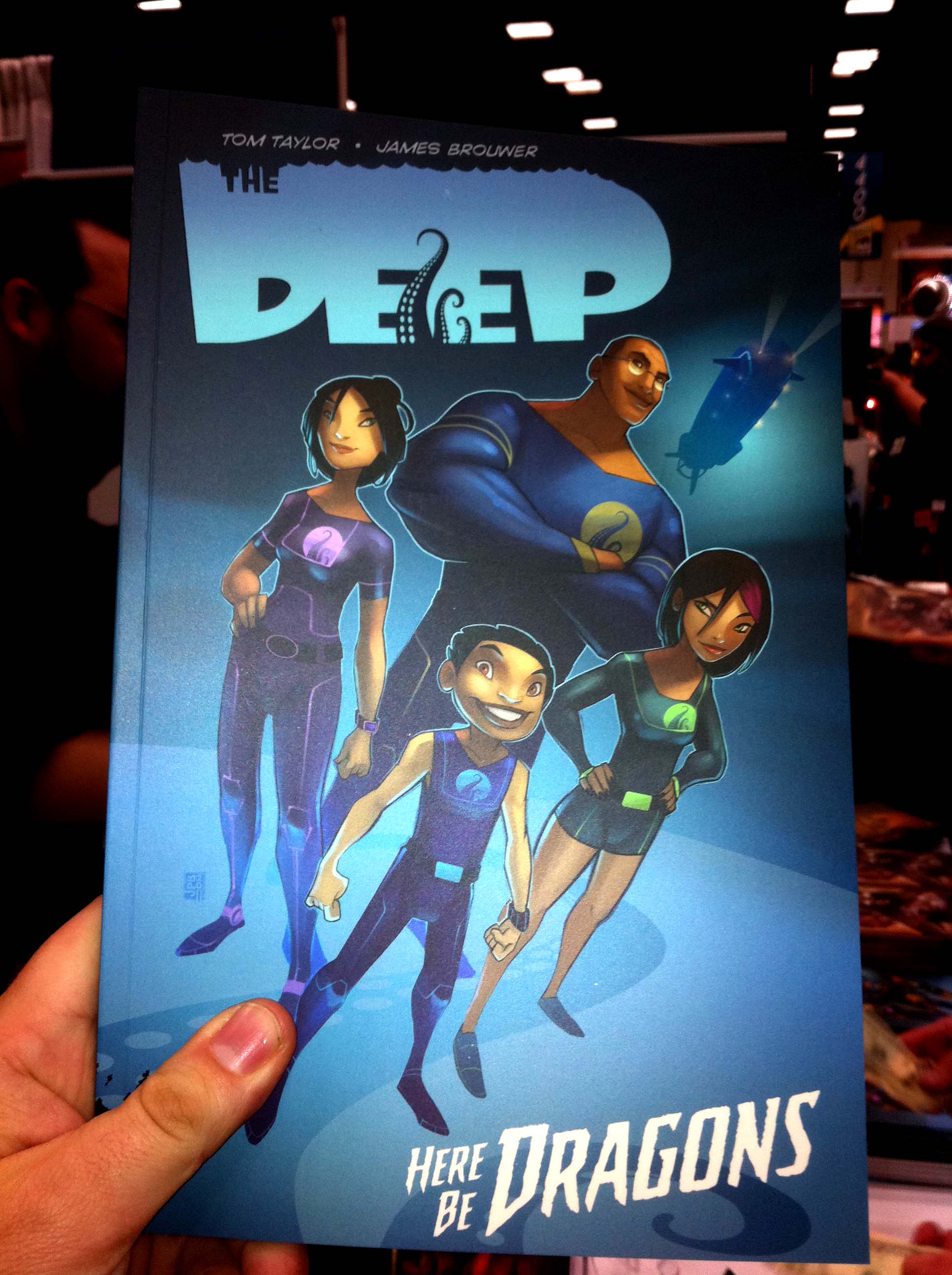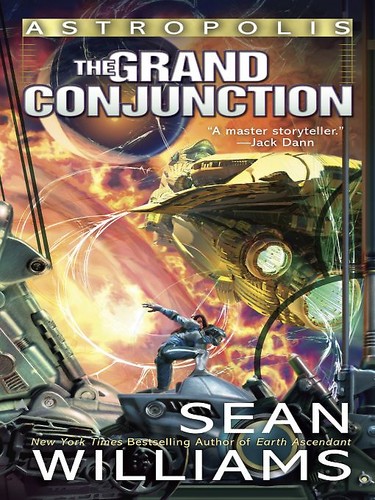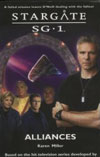I’m expanding my series featuring fantastic authors to include fantastically creative people across the different mediums, which is why I’ve invited the talented Tom Taylor to drop by.
Watch out for the give-away question at the end of the interview.
I usually put a photo right here, but I couldn’t resist this:
Artist Harrison Chua draws comicbook writer Tom Taylor
[youtube=http://www.youtube.com/watch?v=dCDGPRKdn8A]
Q: Not only do you write for comics, but you’re also an ‘award-winning playwright who has written for radio, musicals, film, magazines, satirical news and sketch comedy. (For a full list of Tom’s works see here). Tell me, did you sit there doodling in your school books while daydreaming about what you’d do one day? Did your teachers encourage you, or tell you no-one ever makes any money from writing? Did you ever dream you’d see your work performed in the Sydney Opera House?
Yes, I absolutely spent all of high school doodling in books, especially in Geography, where I just drew and drew… in-between sleeping. My geography teacher wasn’t very engaging. He’d probably have far less-kind things to say about me.
Outside of the arts, the education system was never really my friend. I did have a few teachers who encouraged me, and one in particular who used to let me leave class and do creative writing up a tree.
No, I can’t say I ever thought my work would be on at the Sydney Opera House or at the Edinburgh Festival. However, being involved in theatre from the age of 12, and in a singing group before that, I probably thought I’d have a better chance of having something on at the Opera House than to be writing in a galaxy far, far away.
Q: I’ve interviewed authors who write books for Star Wars, Star Gate, Doctor Who etc. And many of them start out as fans, so it is no trouble for them to immerse themselves in the world. You’re currently writing for Star Wars – Blood Ties with Chris Scalf, Invasion with Colin Wilson published by Dark Horse Comics, with more on the way. Looks like you are thoroughly immersed! Is there a huge ‘bible’ of information you have to refer to? Do you get to add to this ‘bible’ as you develop your stories?


 Absolutely. Star Wars canon is immense. On top of the movies, you have the cartoons, computer games, short stories, role playing games, novels, and more, and almost everything that is created becomes canon. So yes, all creators need a bible and I think everybody becomes fast email friends with a man known as Leland Chee, Lucasfilm’s keeper of continuity. He’ll be called on a lot in the next year as I work on the next instalment of Star Wars: Blood Ties ‘Boba Fett is Dead’ and some other Star Wars work.
Absolutely. Star Wars canon is immense. On top of the movies, you have the cartoons, computer games, short stories, role playing games, novels, and more, and almost everything that is created becomes canon. So yes, all creators need a bible and I think everybody becomes fast email friends with a man known as Leland Chee, Lucasfilm’s keeper of continuity. He’ll be called on a lot in the next year as I work on the next instalment of Star Wars: Blood Ties ‘Boba Fett is Dead’ and some other Star Wars work.
Q: You also write your own original material. The Deep: Here be Dragons has just come out from Gestalt Publishing, art work by James Brouwer. In a review on Broken Frontier Kris Bather says: ‘Comedy in this artform can always be tricky, but the pair know what they’re doing and elicit the most laughs out of each comedic moment, thanks to great pacing, expressions, and dialogue’. Comedy can be challenging. Did you have to work at developing your relationship with artist James Brouwer, or did the two of you just click?
I’ve written a lot of comedy over the years – musicals, sketch comedy, and plays, including for the Comedy Festival, and generally I don’t really have to think about, or analyze, if something is funny. With James, I found a guy who also just gets it, and just as importantly, is a fantastic storyteller. I used to direct theatre back in the day, and for me the characters on the page need to react appropriately to situations, and need to react to whatever people are saying, just like actors. There are some fantastic artists in professional comics who think that 22 pages of some dark superhero, switching between the same two expressions tells a story. James isn’t one of those guys. James puts so much character and life into the Nekton family (The main characters of The Deep). No character stands around blank-faced while someone else is talking. Every page he sends me has me smiling. So yes, James and I did just click. And, thanks to that click, The Deep is the most joyous comic I’ve been a part of. Seriously, get this book for Christmas, for yourself and for your children. It will fill your heart with rainbows. It will fill your heart with exactly six rainbows. Any more than that and your arteries would begin to clog with rainbows and that would end messily… but probably very colourfully.
Q: Rombies (written by Tom Taylor, illustrated by Skye Ogden, Colours by Mikiko Ponczeck) is a historical paranormal tale set in ancient Rome. What inspired you to set a story in ancient Rome? Have you always been fascinated by its history?
 Skye Ogden inspired me. Honestly, this was originally his idea. I just ran with it, and I’m very glad I did. Gestalt actually asked me to write this very early on in our working relationship and I said no. I’m not a massive horror fan and I wasn’t sure this was the project for me. The night after I said no, I had a dream about Gladiators fighting zombie lions beneath the Coliseum. I called them the very next morning to say yes. I wanted to see Zombie Lions come to un-life. We made that happen. Where we plan to go next is epic.
Skye Ogden inspired me. Honestly, this was originally his idea. I just ran with it, and I’m very glad I did. Gestalt actually asked me to write this very early on in our working relationship and I said no. I’m not a massive horror fan and I wasn’t sure this was the project for me. The night after I said no, I had a dream about Gladiators fighting zombie lions beneath the Coliseum. I called them the very next morning to say yes. I wanted to see Zombie Lions come to un-life. We made that happen. Where we plan to go next is epic.
[youtube=http://www.youtube.com/watch?feature=player_embedded&v=9eVw0wPd7vI#]
Q: Example (written by Tom Taylor, Illustrated by Colin Wilson) is being made into a short film. Newsarama said: ‘This book should be used in writing classes everywhere, and should be the primary example (no pun intended) for aspiring comic writers to reference when trying to learn how to write dramatic and compelling dialogue.’ This is quite an accolade for any work, let alone a graphic novel. (I see it is an adaption of your award-winning play Example. I always tell my kids a play needs to be really well written because it has to hold the audience with the power of the premise, characterisation and dialogue – no special effects). Do you do a lot of train travel? Do you listen in to people’s conversations or does it all spring from some deep dark part of your psyche?
The Example was written in the wake of the London Bombing. And it was these events, along with a typically appalling, fear-mongering ad for A Current Affair, which inspired the play. The government in Australia at the time was pushing the ‘Be alert, not alarmed’ slogan and that was also driving me insane. A lot of my writing is a vehicle for vent – an outlet for outrage. Almost all of my short plays stem from this.
On the surface, The Example is a story about a man, a woman and their reactions to an abandoned briefcase on a railway platform. Below the surface, it’s an exploration of terror and racism. It’s essentially a prejudice versus preservation story. And it’s just been optioned and filmed. Yay!
[youtube=http://www.youtube.com/watch?v=K1KCYq11GHY&feature=player_embedded]
Q: Flinch is a collection of stories including Shaun Tan, Justin Randall, James Barclay, Terry Dowling and yourself among others. The stories all revolve around each person’s interpretation of the word ‘flinch’. One of your stories White Dove 111 is about a colonist ship leaving a dying earth. This looks like an SF mystery from the description. Did you grow up reading Science Fiction?
 I did read a lot of sci-fi, but I was far more into Fantasy. White Dove III was another great excuse to work with the man, Colin Wilson. I also wrote another short story in Flinch called 96,000m, illustrated by Tom Bonin, which was my first published underwater story. It was the first time I’d publicly shown my fascination for all things underwater and squid-like. Although, that story was a far cry from the joyous all-ages adventure of The Deep: Here Be Dragons. 96000m is pretty disturbing. If you like disturbed, or are disturbed, you’ll probably like 96000m.
I did read a lot of sci-fi, but I was far more into Fantasy. White Dove III was another great excuse to work with the man, Colin Wilson. I also wrote another short story in Flinch called 96,000m, illustrated by Tom Bonin, which was my first published underwater story. It was the first time I’d publicly shown my fascination for all things underwater and squid-like. Although, that story was a far cry from the joyous all-ages adventure of The Deep: Here Be Dragons. 96000m is pretty disturbing. If you like disturbed, or are disturbed, you’ll probably like 96000m.
Q: You are working for DC comics (Green Lantern and Sinestro). Is this one of your childhood dreams to write in the DC universe?
Yes. So many times, yes.
 I grew up with DC comics. I loved all of these characters as a kid and never stopped loving them (except outwardly when I was a teenager). Superman is my absolute hero and writing him is one of my ultimate goals. I’m really proud of The Brainiac/Sinestro Corp War which is the story I’ve just written in DCUO Legends #16 and #17 and I was very lucky to get to work with a great artist like Bruno Redondo (another guy who, like James, just gets it). I’ve written something else unannounced, and I’m also still staggered I got to write The Authority for a year. The Authority was the super team that made me realise that superhero comics could also serve as an outlet for outrage.
I grew up with DC comics. I loved all of these characters as a kid and never stopped loving them (except outwardly when I was a teenager). Superman is my absolute hero and writing him is one of my ultimate goals. I’m really proud of The Brainiac/Sinestro Corp War which is the story I’ve just written in DCUO Legends #16 and #17 and I was very lucky to get to work with a great artist like Bruno Redondo (another guy who, like James, just gets it). I’ve written something else unannounced, and I’m also still staggered I got to write The Authority for a year. The Authority was the super team that made me realise that superhero comics could also serve as an outlet for outrage.
Q: Looking at your published works you have been amazingly productive. In an interview on HYPERLINK SciFiBlock you say: ‘Like any work, there are times when it’s a hard slog and things get very hard, but then you just have to pick up the nearest blunt object, smash yourself in the face, and remind yourself that you’re writing Jedi and superheroes for a living.’ Do you have a work routine that helps you meet these deadlines?
 I’d like to say I have a routine but, really, I have kids, including a baby who doesn’t sleep very well, and that throws all routines out. My only real routine is that I stay up very late to write. The rest of the world needs to be asleep before I can do my best work. The Example was written one night between 1am and 5am. I started writing this very interview at 2am, it’s now 4.27am… and the baby’s already been up twice.
I’d like to say I have a routine but, really, I have kids, including a baby who doesn’t sleep very well, and that throws all routines out. My only real routine is that I stay up very late to write. The rest of the world needs to be asleep before I can do my best work. The Example was written one night between 1am and 5am. I started writing this very interview at 2am, it’s now 4.27am… and the baby’s already been up twice.
Q: I was prompted to start this series of interviews because there seems to be a perception in the US and the UK that fantasy (in books) is a bit of a boy’s club. I’ve come across quite a bit of talk on the blogs recently about female comic artists and writers, and their lack of representation in large companies like DC. Have you come across this in your professional life?
I have heard this, and I do know this was an issue for DC in the announcement of the New 52, one they’re trying very hard to rectify. I think mainstream superhero comics have the perception of being a boys club, but the comics medium absolutely isn’t.
This year alone, I’ve worked with four female artists on eight different projects, which is possibly more female creators than some of the majors are working with.
I’m not sure superheroes have the same appeal for women. And I’d argue that they are often narrowly written and illustrated with men in mind. For every brilliantly written and lovingly illustrated superhero book like Secret Six by Gail Simone and (Australia’s own) Nicola Scott, there is a book with a scantily clad superheroine tearing her clothing while scratching the face of… probably another scantily clad woman who is tearing her clothing.
But outside of the Superhero genre, there are a lot of women telling brilliant stories.
Keep an eye out for Believe, which is set to be published soon, to see the incredible work of Emily Smith (and two other huge unannounced things we’re doing together). On top of Rombies, Mikiko Ponczek has just handed in the last pages of a 22 page story she has illustrated and coloured. I can’t wait for that one to be announced. It’s a script I’m very happy with and Miki has just smashed it.
Kate Moon has already finished the story Poppins which will be included in Brief Cases (whenever that comes out) and I have a small, but very cool story coming out with someone else who must remain nameless for now. She knows who she is. Hi, you!
Q: Following on from that, does the gender of the writer/artist change your expectations when you approach their work?
Nope. I never really think about it. And, when I do, I actually tend to get genders wrong.
Sorry, Robin Hobb.
Q: And here’s the fun question. If you could book a trip on a time machine, where and when would you go, and why?
I think it’s ridiculous that a time-machine company needs to take bookings. You can be anywhere and anywhen! Why do you need me at the time-machine depot at 9.30am?? It’s a disgrace!
Having gotten over my rant, and glared at the Time Machine operator who apparently couldn’t come to my house at 12, I would take a trip a very long way back.
I hypothesized earlier tonight that a pterodactyl may have eaten a missing link which would have caused humans to have one extra thumb. I would go back in time and ride that Pterodactyl into a live volcano before it ate our three-thumbed ancestor, thereby making all of us fifty percent more opposable.
You’re welcome.
For your chance to win a copy of The Deep: Here Be Dragons, and the six rainbows in your heart that come with it, answer this question.
If you had three thumbs, what would you do differently?
Follow Tom on Twitter: @TomTaylorMade
See Tom’s Blog
Catch up with Tom on Facebook




































